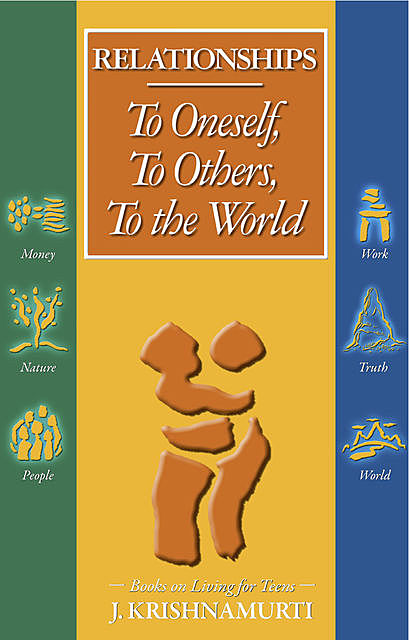Relationships
173 afgedrukte pagina’s
- Auteursrechteigenaar
- Bookwire
- Oorspronkelijke uitgave
- 2012
- Jaar van uitgave
- 2012
- Uitgeverij
- Krishnamurti Foundation America
Citaten
- Катя Коciteerde uit8 jaar geledenThinking about the sexual act becomes lust, which is entirely different from the act of sex. What most people are concerned with is the passion of lust. Craving before and after sex is lust. This craving is thought. Thought is not love.
- Катя Коciteerde uit8 jaar geledenBut desire does not stop there. Your perception is not just perception, but with it comes sensation. With the arising of sensation you want to touch, to contact, and then comes the urge to possess. You say, "This is beautiful, I must have it," and so begins the turmoil of desire.
Now, is it possible to see, to observe, to be aware of the beautiful and the ugly things of life, and not say, "I must have," or "I must not have"? Have you ever just observed anything? Do you understand, sirs? - Катя Коciteerde uit8 jaar geledenTo be full of emotion is obviously not love, because a sentimental person can be cruel when his sentiments are not responded to, when his feelings have no outlet.
fb2epub
Sleep je bestanden hiernaartoe
(maximaal 5 per keer)


